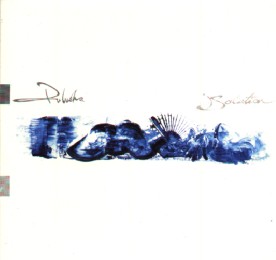
Artist: Laura
Album: Radio Swan is Down
Label: Alone Again
Year: 2006
Hailing from Melbourne, Laura are one of the few Australian post-rock bands who play in a style that can be easily compared to contemporaries such as Godspeed You! Black Emperor or Explosions in the Sky. On first examination, their music sounds like the midpoint of those two bands. Closer examination, however, reveals a greater depth to Laura's music and a much broader range of sounds. Laura employ a wide range of instruments on Radio Swan is Down; guitars, synthesisers, samplers, strings, male and female vocals, brass and various percussion instruments all make welcome appearances throughout the record. Released just over a year after their full-length debut, Radio Swan is Down is the conclusion of an enormous amount of work in a small amount of time. Radio Swan is Down is an intense album that deals with a number of different emotional states; depression, paranoia and joy all seem to be fairly strong themes throughout the album.
The strongest point of Radio Swan is Down is, undoubtedly, the fact that there is just so much in it. The album goes through many different emotions and musical ideas in just one hour, perhaps unsurprising considering that all of the music written for this album originally clocked in at 200 minutes. It is incredibly rare for an album to have so much diversity yet be so cohesive, but Radio Swan is Down achieves this and then some; when playing the album all the way through, its 11 tracks meld together to make the album feel like one long song that takes the listener on a rich and detailed journey. That's not to say that the songs don't stand up by themselves, because the majority of the album's tracks are certainly wonderful songs in their own right. 'Every Light', the album's single, runs for just under 4 minutes and is quite possibly one of the most uplifting songs released this year. 'I Hope' and 'Patterns Not People' feature some amazing male vocal work while 'Cambridge Bypass' starts as an ambient piece before mutating into a very full song.
Though Laura are quite obviously talented musicians, their real strength lies in their songwriting. Their ability to incorporate such a wide variety of sounds, textures and emotions into an album while keeping it cohesive is matched by very few bands. Radio Swan is Down is unique, in that every song is very different from the one before it, yet the songs seamlessly blend together to create a whole. In this way, it is entirely possible to listen to the album many times and still not grasp everything that is happening in the songs. In the realm of post-rock, this is certainly one of the best releases of the year. - sputnikmusic.com












